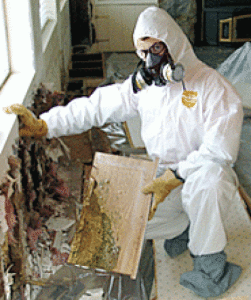Mold Liability for Landlords
Molds can cause harm to both structures and human health. The rate at which mold grows and spreads can vary with different conditions. At whatever stage of growth the
Some of the common damages that come about as a result of molding include peeling and cracking of the paint job, staining on walls and ceilings, and decay of cardboard and wood that in turn may compromise the structural integrity of the building. The health concerns that may arise from molding include allergic reactions and sometimes poisoning from some strains of mold that are indeed poisonous.
 Moldy Liability
Moldy Liability
Many landlords have found themselves in the cross-hairs with the law after being taken to court over property and health damages that may have occurred as a result of mold infestations. The big question however remains to be whether or not the landlord is liable in these situations and to what extent.
It is unfortunate that the landlord’s responsibilities when it comes to mold infestations are still more of a gray area with no clear stipulations or regulations. It is only within some jurisdictions that regulations have been put in place to clearly define what is acceptable when it comes to indoor air and mold. These states include Indiana, California and Texas as well as in cities such as the City of New York and San Francisco.
In as much as there may not be clear rules regarding liability, the landlord is responsible for provision of safe and livable housing conditions to their tenants. For this reason, they can easily be held accountable for damages that may arise from molding.
When the problem of molding arises from the landlord’s failure to fix a leak that has previously been brought to their attention, they will be responsible for the damages and issues that may come up as a consequence of that neglect. The only state that is less than explicit on that front is the state of Arkansas. In every other state, if the landlord does not fix a leak in the plumbing system or in the roof and in turn mold grows and the tenant gets sick from inhaling the spores, they can seek legal redress against the landlord and even sue for damages in terms of treatment costs.
However, in a situation where the molding occurs as a result of the tenant’s own activities, the landlord may not be held responsible for the damages. For example, if the tenant does not report a leaky pipe as soon as it happens and mold grows as a result, the landlord may not be liable for damages. This is because it is up to the tenant to report any issues to the management of the building. The same applies when the tenant neither maintains the cleanliness of the home nor opens the windows often and the house becomes stuffy and highly humid. It is very important to enable proper circulation of air in the house by opening windows and keeping some level of cleanliness that will deter growth of mold.
Before signing a lease for a house, you need to be very clear about what the rules are regarding molds. As a landlord, it is much easier to prevent molding from happening in the first place than removing them. At Allied Restoration Co. we provide an opportunity to do that by remedying water damage and containing mold infestations. Schedule an appointment with us and we’ll help you avoid legal trouble brought on by mold.
